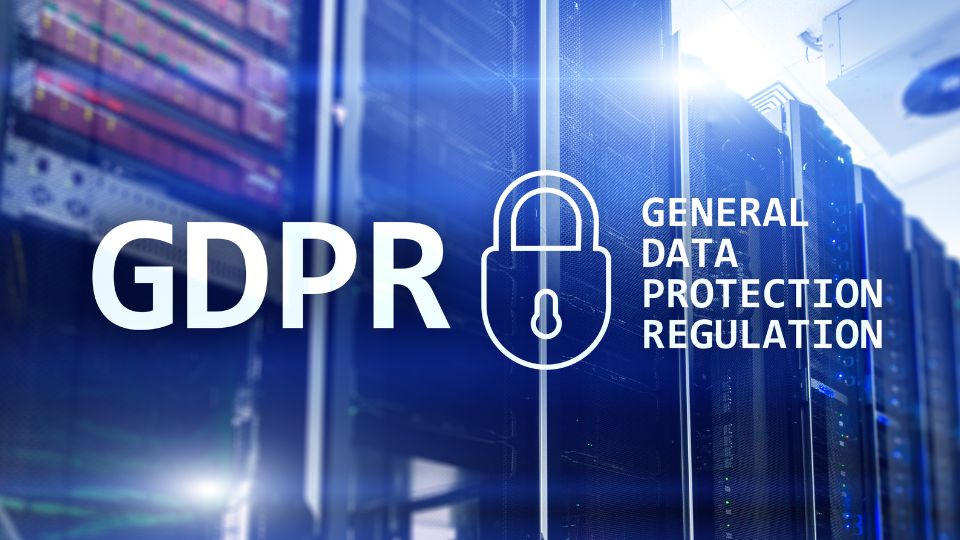The Secrets of UAE Data Protection Law: Your Essential Guide
[TOC]
Introduction
In the contemporary digital landscape, the significance of UAE data protection laws, particularly, has become increasingly paramount. This article endeavors to offer a comprehensive analysis of the regulatory framework governing data protection and privacy in the UAE. The focus will be on elucidating the unique legal provisions and compliance requirements that organizations and individuals must adhere to within this specific geopolitical context.
What is Data Protection Law?

Data protection law governs how personal and sensitive information is handled, stored, and processed. In the UAE, the Personal Data Protection Law is the cornerstone that ensures the confidentiality and privacy of individuals.
Watch this video for more insights
Historical Background
Understanding the historical background of data protection laws can offer valuable insights into their current state. The UAE has been proactive in implementing laws that protect individual privacy. The Personal Data Protection Law is the first federal law drafted in partnership with major technology companies and came into force on January 2, 2022.
For more details, you can visit this link.
Key Principles of Data Protection Law
Definition and Scope
The law applies to the processing of personal data, both electronically and otherwise, within and outside the country. It defines the controls for processing personal data and outlines the general obligations of companies to secure it.
Importance in the Digital Age
In today’s digitally interconnected landscape, data breaches can lead to disastrous outcomes, especially when unauthorized access occurs. The law empowers the data owner with the right to request amendments to incorrect personal data, identified through online identifiers, and to limit or halt its processing. This is crucial for maintaining a high-security level and implementing organizational measures to prevent unauthorized access.
UAE Data Office: The Vanguard of Data Governance

The UAE Data Office serves as the linchpin for data governance and management across the United Arab Emirates. It plays a pivotal role in ensuring compliance with the Personal Data Protection Law UAE, thereby fortifying the nation’s data infrastructure.
The Role of the Data Office in Data Protection
The Data Office is instrumental in implementing and overseeing data protection and privacy laws in the UAE. It acts as a liaison between governmental bodies and private organizations, ensuring that data protection measures are uniformly applied. The office works closely with government authorities to ensure adequate protection of data and uphold the legal rights of individuals. By coordinating with various government authorities, the Data Office plays a pivotal role in establishing and enforcing data protection standards across sectors.
Allows Cross Border Data Flow: Bridging Geographical Gaps
The Importance of Cross-Border Data Flow
In the era of globalization, the ability to transfer data across borders is crucial. The UAE Data Office plays a pivotal role in facilitating this, especially in compliance with data protection law.
Reforms to the DIFC Data Protection Law Officially Ratified
The Dubai International Financial Centre (DIFC) has officially ratified sweeping reforms to its Data Protection Law, marking a significant milestone in the UAE’s journey towards robust data governance. This article delves into the key aspects of these reforms and how they align with the broader UAE Data Protection Law.
Data protection law governs how personal and sensitive information is collected, stored, and processed by organizations. It aims to safeguard the privacy rights of individuals and ensure that their data is handled responsibly.
| Fact | Details |
| Enactment Date | January 2022 |
| Governing Body | DIFC Authority |
| Key Provisions | Consent, Data Minimization, and Security |
Alignment with UAE Data Protection Law
The reforms in the DIFC Data Protection Law are in sync with the Federal Decree Law No. 45 of 2021 regarding the Protection of Personal Data. This federal law serves as the cornerstone for data protection and privacy laws in the UAE.
Key Reforms in DIFC Data Protection Law
Consent Mechanism:
One of the most noteworthy reforms is the explicit consent mechanism for data collection. This aligns with the personal data protection law in the UAE, which also mandates explicit consent for data processing.
Data Security:
The reforms also focus on strengthening data security measures, thereby ensuring that data protection and privacy laws are not just on paper but are effectively implemented.
Implications for Companies
Companies operating in the DIFC will now have to adhere to stricter guidelines, especially concerning data minimization and security. Non-compliance could lead to substantial financial penalties and legal consequences.
| Non-Compliance | Penalty |
| Data Breach | Up to $500,000 |
| Lack of Consent | Up to $300,000 |
Read more about Implications for Companies
Future Outlook
The reforms are expected to make the DIFC an even more attractive hub for international businesses, given the enhanced focus on data protection. This is a step forward in making the UAE a global leader in data protection and privacy laws.
Global vs. Local Laws

While global laws like GDPR have set the standard, the Personal Data Protection Law in the UAE has its unique attributes tailored to the needs and culture of the region.
Here’s another video to deepen your understanding
Technological Safeguards
Encryption and Two-Factor Authentication
Federal Law No. 2 of 2019 encourages the encryption of sensitive data. Two-factor authentication is also recommended, particularly for remote access to confidential information.
Offsite Servers
The law advises the use of offsite servers that are encrypted and maintained by certified professionals for storing sensitive data.
Vendor Management
When employing third-party services, it’s crucial to ensure they comply with Federal Law No. 2 of 2019, particularly concerning data storage and protection measures.
Advanced Technological Measures

AI and Machine Learning in Data Protection
In the UAE, Federal Law No. 2 of 2019 encourages the use of Artificial Intelligence and Machine Learning for predictive threat analysis and automated responses, especially in the context of biometric data. This aligns with the applicable data protection law and is overseen by the authority responsible for data protection.
Blockchain Technology
The law also advises the use of Blockchain technology for creating immutable records of transactions, thereby enhancing data security. This is particularly useful for securing sensitive biometric data.
Data Breach Response Plan
Having a well-defined data breach response plan is crucial under UAE law. This plan should outline the legal obligations and steps to be taken in the event of a data breach, as guided by the authority responsible for overseeing data protection measures.
Legislation and Regulations
GDPR

The General Data Protection Regulation (GDPR) is a regulation enacted by the EU but has global implications. In the UAE, organizations dealing with EU citizens’ data must comply with GDPR.
GDPR Compliance Checklist
-
- Obtain explicit consent for data collection
-
- Implement data protection measures
-
- Regular audits
CCPA
The California Consumer Privacy Act (CCPA) is another significant legislation that impacts data protection. While it is a U.S. state law, companies in the UAE dealing with California residents must comply.
CCPA vs. GDPR
While both aim to protect consumer data, there are key differences, such as the rights provided to consumers and the obligations placed on businesses.
HIPAA for Healthcare

What is HIPAA and its Relevance to Medical Records and Health Status?
The Health Insurance Portability and Accountability Act (HIPAA) is crucial for healthcare providers in the UAE who deal with U.S. patients. Enacted in 1996, HIPAA serves as a benchmark for healthcare data protection, including public health and special records, impacting both data protection law and consumer protection regulations globally. The act also outlines stringent security procedures that are overseen by the relevant regulatory authority.
| Key Aspect | Description |
| Medical Records | Protected under HIPAA |
| Impact Assessment | Required for data breaches |
| Consumer Protection Regulations | Aligned with HIPAA |
| Privacy Policies | Governed by the Privacy Rule |
Key Provisions, Cyber Security, and Technology Method
HIPAA is divided into several rules, each focusing on a different aspect of healthcare data protection and technology method:
-
- Privacy Rule: Governs the use and disclosure of Protected Health Information (PHI).
-
- Security Rule: Sets cyber security standards for electronic PHI.
-
- Breach Notification Rule: Mandates impact assessments and notifications in case of a data breach by any public authority.
Consumer Protection Regulations, Conditions of Consent, and Health Care Services
HIPAA mandates that covered entities, including health care services, must obtain express consent from patients before collecting or processing sensitive data. This aligns with consumer protection regulations and outlines the conditions of consent required for data processing.
-
-
Patient Consent is Mandatory
-
-
- Under laws like the GDPR’s Article 9 and UAE’s Federal Law No. 2 of 2019, obtaining patient consent for data processing is a legal requirement. Non-compliance can result in fines and legal action.
-
-
Strict Data Encryption Protocols
-
-
- Data encryption is mandated by legal frameworks such as GDPR’s Article 32 and UAE’s Federal Law. Failure to adhere to these encryption standards can lead to legal liabilities, including loss of licensure.
-
-
Regular Compliance Checks
-
-
- Both the GDPR and UAE Federal Data Protection Law require regular compliance checks to assess data protection measures. Non-compliance can result in hefty fines and legal repercussions.
Global Implications and Dubai Healthcare City Authority
HIPAA’s principles are often adopted by healthcare organizations worldwide, including the Dubai Healthcare City Authority, to ensure a high level of protection for patient data. It serves as a benchmark for personal data protection law in UAE and other data protection and privacy laws.
Digital Transaction Processing and Civil Claims
HIPAA also has provisions related to digital transaction processing, ensuring that all electronic transactions meet the required cyber security standards. Failure to comply can result in civil claims and breach obligations, necessitating another round of impact assessments.
Read more about HIPAA and its global implications
Single Data Authority: One-Stop Solution for Data Governance
Why a Single Data Authority?

Having a single authority simplifies the regulatory landscape. It acts as a centralized body for data protection and privacy laws, making it easier for organizations to comply with regulations.
Here’s another video to deepen your understanding
Right for Consent: Empowering Individuals
What is the Right for Consent?
The right for consent under the Personal Data Protection Law UAE empowers individuals to have a say in how their data is used. It is a cornerstone in the UAE’s approach to data governance.
Sensitive Data: A Crucial Aspect of Data Protection in the UAE
Sensitive data refers to personal information that is highly confidential and requires stringent security measures. This includes financial records, medical history, criminal records, and other personal identifiers. The mishandling of such data can lead to severe consequences for the natural person involved and organizations.
| Type of Sensitive Data | Examples |
| Financial Data | Credit Card Numbers, Bank Accounts |
| Health Records | Medical History, Test Results |
| Personal Identifiers | Social Security Numbers, Passport |
| Criminal Records | Criminal Record |
Connection to UAE Data Protection Law
The UAE Data Protection Law, specifically the Federal Decree Law No. 45 of 2021, provides a comprehensive framework for the protection of sensitive data. It mandates that organizations must obtain explicit consent from the natural person before collecting or processing such data. The executive regulation further outlines the level of protection required.
Read more about Federal Decree Law No. 45 of 2021
Data Protection and Privacy Laws in the UAE
The data protection and privacy laws in the UAE, often referred to as protection legislation, are designed to safeguard sensitive data. They impose strict regulations on how data should be stored, processed, and transferred by the judicial authority. Failure to comply can result in severe penalties, as outlined in the executive regulation.
Read more about Data Protection and Privacy Laws
Personal Data Protection Law in UAE
The personal data protection law in UAE, another form of protection legislation, is particularly stringent when it comes to sensitive data. It outlines the rights of the natural person and the responsibilities of the data controller, ensuring that sensitive data is handled with the utmost care and the highest level of protection.
YOUR PRIVACY: A Non-Negotiable Commitment

The Essence of Privacy
In the UAE, privacy is not just a concept but a legally enforceable right upheld by applicable legislation. The Personal Data Protection Law UAE ensures that individuals, or legal persons, have ultimate control over their personal information. Privacy policies are put in place to guide the handling and cross-border processing of this sensitive data. The law serves as the legal bases for these policies and is enforced by public authorities, ensuring that every legal person is protected under the scope of the law.
| Key Facts | Details |
| Governing Body | UAE Data Office |
| Key Legislation | Personal Data Protection Law UAE |
| Cross-Border Data Flow | Allowed under specific regulations |
| Single Data Authority | Centralizes data governance |
| Right for Consent | Empowers individuals |
Legal Aspects of Data Audits

The Imperative of Regular Audits
The legal framework surrounding data protection often mandates regular audits. For instance, Article 32 of the GDPR requires organizations to regularly assess the effectiveness of their data protection measures. Similarly, the UAE’s Federal Law No. 2 of 2019 concerning the use of Information and Communication Technology in Health Fields mandates regular audits for healthcare providers.
Audit Procedures and Legal Compliance
-
- Scope Definition: The scope of the audit must be clearly defined and should align with legal requirements, such as those specified in Article 30 of the GDPR, which mandates organizations to maintain a record of processing activities.
- Data Inventory: An exhaustive inventory of data must be created, detailing what kind of data is stored, where, and how it is processed. This is often a requirement under various data protection laws.
- Gap Analysis: The audit should identify any gaps between current practices and legal requirements. This is crucial for avoiding legal repercussions.
- Legal Reporting: Post-audit, a legally compliant report must be generated. This report could be essential for demonstrating compliance with regulatory bodies.
Staff Training and Legal Mandates
Training staff on data protection measures is not just a best practice but often a legal requirement. For instance, Article 39 of the GDPR mandates the training of staff involved in data processing activities.
Legal Framework for Training Modules
-
-
Understanding Legal Obligations: The first step in any training module should be to make staff aware of their legal obligations, as ignorance of the law is not considered an excuse in legal proceedings.
-
-
-
Data Handling Protocols: Staff should be trained on the legally approved methods of data handling, storage, and transfer to ensure compliance with laws.
-
-
-
Incident Response Training: Staff should be trained on how to respond to data breaches, including the legal requirements for reporting such incidents, as mandated by Article 33 of the GDPR.
-
Frequently Asked Questions
What are the legal obligations for data protection in UAE law firms?
Law firms in the UAE are required to comply with Federal Law No. 2 of 2019, which outlines specific data protection measures.
How often should data audits be conducted?
Regular audits are mandated by UAE law to ensure ongoing compliance and security.
What role do employees play in data protection?
Employees are crucial for compliance with Federal Law No. 2 of 2019, making regular training and awareness programs essential.
Conclusion: Navigating the Complex Landscape of Data Protection in UAE Law Firms
In summary, the landscape of data protection within law firms in the United Arab Emirates is governed by a complex set of regulations, most notably Federal Law No. 2 of 2019. Compliance with these laws is not merely a legal requirement but a cornerstone for maintaining client trust and the firm’s reputation. From technological safeguards like encryption and two-factor authentication to human elements like staff training and regular audits, every aspect is crucial for comprehensive data protection.
Intellectual Property Consulting Firms can offer invaluable insights and specialized legal advice to navigate this complex regulatory landscape. Their expertise can help law firms in the UAE to not only comply with existing laws but also to prepare for future legal changes in the realm of data protection.
For those seeking specialized assistance in Intellectual Property Law, Raya AL Ameri Legal Consultation has intellectual property law attorneys who are experienced in all sorts of IP Law and can help you with its intricacies. Reach out to us on +971 4 578 6050. You can call us or WhatsApp us for further consultation.
By adhering to these guidelines and staying abreast of legal updates, law firms can mitigate risks, avoid legal complications, and most importantly, safeguard the sensitive information they are entrusted with.


Your blog offers an extensive and insightful exploration of the UAE’s data protection landscape, effectively covering key laws, principles, and compliance requirements. The structure is clear and informative, making complex legal concepts accessible to readers.
One additional point to consider is the emphasis on fostering a culture of data protection within organizations. Beyond compliance, cultivating awareness and accountability among all employees can significantly enhance data security and minimize risks.
Overall, you do an excellent job highlighting the importance of robust data protection measures and the roles of various stakeholders, including the UAE Data Office. Your guidance on consulting legal experts for compliance is particularly valuable. Great work!
Rahul | Sandbox Security